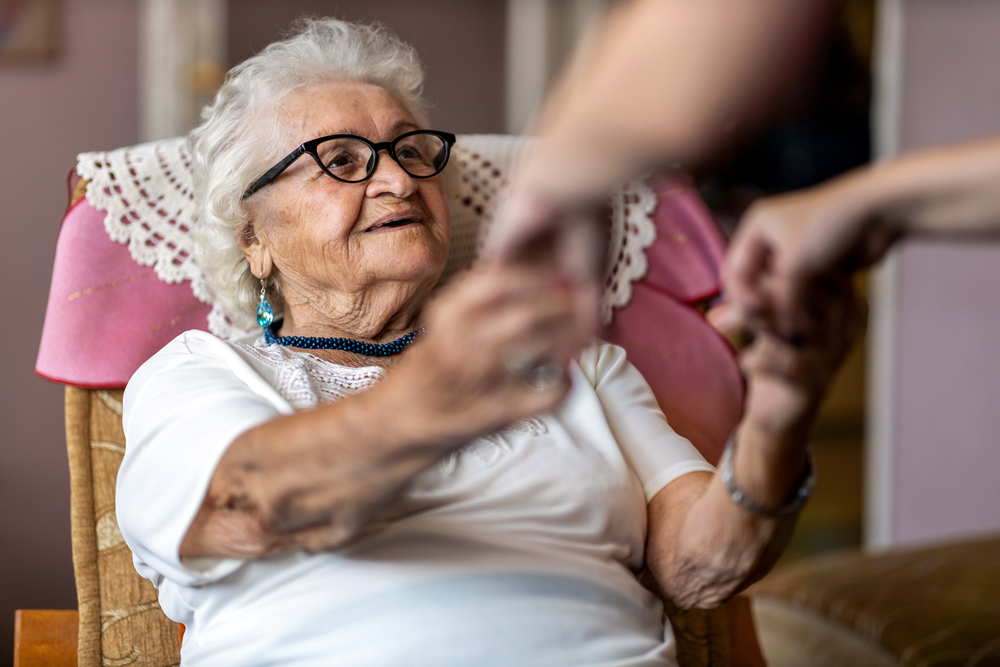How to Recognize and Address Depression in the Elderly
The golden years are often hailed as a time for relaxation and enjoyment after decades of hard work and responsibilities. However, this period can also bring significant challenges and changes for many seniors, from health issues to social isolation, which can impact their mental well-being. Unfortunately, depression in the elderly is frequently overlooked and sometimes mistaken as an inevitable part of aging.
But it’s crucial to recognize that feeling blue isn’t a mandatory aspect of growing older. Seniors deserve to live their later years with joy and fulfillment, and recognizing and addressing depression is a key part of that. If you’re in Tarzana, in-home care can be a helpful way to address this on time, but there are other options as well. Let’s explore how we can identify signs of depression in the elderly and take steps to support them through such challenges.
How do you assess an older adult for depression?

Here are the necessary steps:
- Observing the subtle signs
Depression in seniors might not always present as crying or visible sadness. It can manifest as a lack of motivation, a decrease in self-care, or an increase in irritability. Sometimes, it’s the absence of pleasure in activities they once loved or a noticeable withdrawal from social interactions. Being vigilant about these subtle shifts in behavior and mood is the first step in recognizing the problem.
- Creating a safe space for conversation
Open and honest dialogue is very important. This doesn’t mean simply asking, “Are you okay?” You have to engage in meaningful conversations, ask about their feelings, thoughts, and daily experiences, and show genuine interest and empathy. Making it clear that it’s safe to share their feelings without fear of judgment is a key part of this.
- Identifying key behavioral changes
Significant changes in eating or sleeping patterns, a lack of energy, or expressing feelings of hopelessness or worthlessness are red flags. Also, pay attention to increased use of alcohol or medication, which might be an attempt to self-medicate.
- Contextual clues matter
Understanding the context of their life can provide insight into their mental state. Have there been recent life changes such as bereavement, a move to a new living environment, or a significant health diagnosis? These events can trigger or exacerbate depression.
- Seeking professional insight
A healthcare provider can conduct a thorough assessment to determine if what they’re experiencing is depression. They might use questionnaires, interviews, and other diagnostic tools. Encourage your loved one to undergo this professional evaluation and offer your support throughout the process.
What is a strategy to help someone who is suffering from depression?
If a diagnosis of depression is confirmed, there are several ways to support an elderly person in navigating and overcoming this challenging time:
- Advocating for professional care
Guide them in finding the right mental health professional or support group. Participation in therapy or counseling can be incredibly beneficial. It could provide them with strategies to manage their feelings and cope with the challenges they’re facing.
- Encouraging social interaction
Help them stay connected or reconnect with friends, family, and community activities. Isolation can exacerbate depression, so fostering a sense of belonging and inclusion is more important than you may think.
- Promoting physical activity and nutrition
Regular physical activity and a nutritious diet can significantly impact mental health. Encourage activities that are suitable for their age and physical condition, like yoga for seniors, and help them make healthy dietary choices. Take a walk to the Summit Valley Edmund D. Edelman Park with them or help them walk the dog around the neighborhood.
- Establishing a routine
A consistent daily routine can provide structure and a sense of purpose. Help them create a balanced schedule that includes time for activities, rest, and socialization. Whether they’d prefer to spend most of their time gardening or spending time with neighbors is up to them. You can just help them create a schedule that works for them.
- Patience and understanding
Be there for them, not just physically, but emotionally. Show them love, offer reassurance, and be patient. Your support can make a significant difference in their journey to recovery.
Where in Tarzana and the surrounding area can I find reliable in-home care?

Depression is not an inevitable part of aging, and with the right support, seniors can overcome it and enjoy a fulfilling life. Rely on A Better Way In Home Care to help you find reliable, compassionate caregivers for your senior loved one. With some preparation and knowledge of what to expect, your loved one can enjoy a higher quality of life very soon. With years of experience under our belt and full dedication to your satisfaction, we only pick out seasoned professionals who are a true match for your loved one. Reach out today and learn all about what we can do for you!
More




